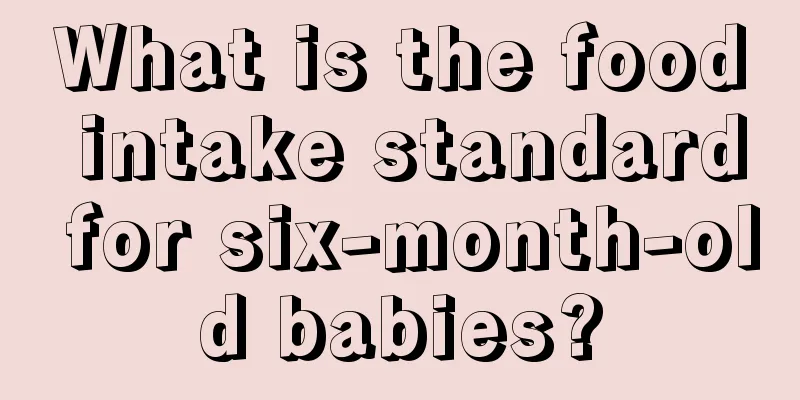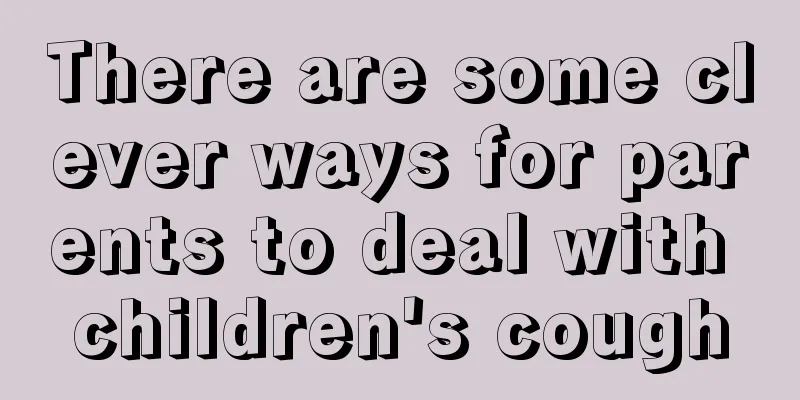Why is the tongue coating thick on an eight-month-old baby?

|
The tongue coating refers to the surface of our tongue, which can effectively reflect some of our oral problems, as well as problems with the body's internal digestive system and conditioning. When our body becomes ill, thick tongue coating will appear. An eight-month-old baby is already able to eat some vegetables, fruits and other foods. Let’s learn what to do if your eight-month-old baby has a thick tongue coating. Thick tongue coating indicates food accumulation, and indigestion can cause food accumulation. Diarrhea is also a sign of indigestion. If food accumulates in the body for too long, it will cause a low fever. If the temperature does not exceed 38 degrees, you don't need antipyretics. Fever is a normal immune response of the human body. Do not lower the body temperature artificially. If the temperature exceeds 38 degrees, the body's metabolism will be disordered and a large amount of toxins will be produced, so you need to reduce the fever at this time. For diarrhea caused by indigestion, you can take some tannic acid protein yeast powder and Xingpi Yanger granules. You can also supplement some vitamin B complex, which can help digestion, as well as compound pancreatic enzyme powder, etc. In addition, supplementing with some probiotics can also help with diarrhea. Has your baby ever eaten fruit puree before? If your baby has eaten it, steam a soft apple, peel it and feed it to him. It can absorb moisture in the stool and promote stool formation. Try to eat less during your baby's diarrhea to reduce the burden on his gastrointestinal tract. Let your baby drink more boiled water to prevent dehydration and accelerate the excretion of metabolic waste. Tongue coating is milk residue attached to the tongue or oral mucosa, a layer of light white substance. Most of the time, it is a symptom of milk stain accumulation because the baby does not drink water but only drinks milk. In severe cases, it will cause small white spots on the baby's oral lining, or yellow-white marks near the corners of the mouth, which is the so-called thrush, and drug treatment is needed at this time. The tongue coating will not affect the baby's health or appetite. Usually, the tongue coating will gradually improve after the baby is three months old, so parents don't need to worry too much. However, it is worth mentioning that if the baby has poor gastrointestinal digestion function, the tongue coating will be thicker and will always exist. In traditional Chinese medicine, the thickness and color of a baby's tongue coating are often used to determine the baby's health condition. Generally speaking, the color of the tongue coating of a healthy person should be "light red tongue texture and thin white tongue coating". If the tongue coating changes from thin to thick, and from less to more, it means that the disease in the person's body is ongoing; on the contrary, if it changes from thick to thin, and from more to less, it means that the disease is gradually subsiding. If the tongue coating is white, it means constipation or gastrointestinal disease; if it is dark brown, it may indicate gastritis; if it is black, it means a serious fever (usually caused by an overdose of antibiotics); if it is dry and flaky, it indicates a serious lack of nutrition in the body. Please note:! ! As long as you give your baby some warm water to rinse his mouth after drinking milk, he will be less likely to have a coating on his tongue. In addition to cleaning your baby's mouth, drinking water can also dilute the lactic acid in the mouth and reduce the growth of bacteria. The above are the reasons why eight-month-old babies have thick tongue coating. In many cases, the thick tongue coating of babies is physiological, because food residues such as milk remain on the tongue. So when this situation is found, parents do not need to be nervous. However, if it persists, it means that there is a certain condition in the body and you need to go to the hospital for examination and treatment in time. The possibility of getting angry will be greater. |
<<: What to do if your six-month-old baby has a cough and runny nose
>>: Why is the tongue coating of an eight-month-old baby white?
Recommend
Symptoms of neonatal colic, three magic weapons to help you identify
Nowadays, neonatal colic is becoming more and mor...
What to do if a 7-year-old child has a nosebleed
Some children have nosebleeds, so they need to pa...
What are the symptoms of children's tooth replacement?
Tooth replacement is a stage that everyone goes t...
How to treat night terrors in children
Some places in our country are very superstitious...
What to do if a little boy matures early
What should I do if a little boy matures early? A...
Redness and swelling at the injection site
Children from birth to six years old need to get ...
What is the cause of fetal mesenteric cysts?
Many female friends often go to the hospital for ...
Eruption order and timing of permanent teeth
When we grow to the age of four or five, the deci...
What should a two-year-old baby eat if he has a bad stomach?
If a two-year-old baby has a bad stomach, it is r...
The child suddenly complained of pain on the right side of his face in the middle of the night
Children like to eat random food, especially swee...
Symptoms of autism in children
Autism in children usually occurs in infancy, and...
What to do if your child has dandruff on his head
Based on our daily life experience, we know that ...
What foods are good for children with bad breath caused by internal heat?
If children have bad breath due to internal heat,...
How old can babies clean their ears?
It is strictly forbidden to pick the ears of babi...
What is the cause of port-wine stain on children’s lips?
If a child has a bright red stain on his lips, yo...









